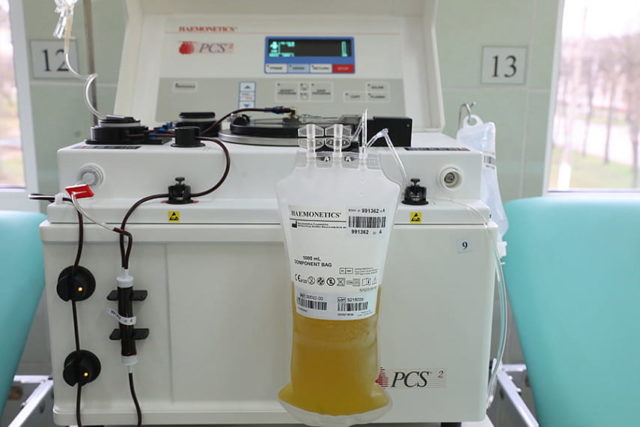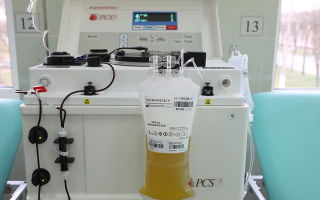Content
Donation is one of the most important issues in modern medicine. Not only health, but also human life often depends on the presence of blood plasma. One of the fractions ensures the transport of nutrients to the organs, adequate functioning of the immune system, and maintenance of homeostasis. The benefits and harms of donating blood plasma have been studied extensively. These nuances should be considered before carrying out the manipulation.
The benefits of donating plasma for the human body
In medicine, transfusion is actively used. As a rule, dangerous conditions are called among the indications for the procedure:
- cardiomyopathy;
- shock;
- trauma accompanied by extensive blood loss.
This explains the importance of donation and its relevance. In recent years, the most popular donation is blood plasma. The specified variant of manipulation refers to gentle procedures. For its implementation, sterile equipment is used. When the fraction is donated, the donor's body is restored within two weeks. Before the procedure, it is necessary to undergo an appropriate examination to reduce the risk of possible complications.

The value of the procedure is due to the composition of the transfused fraction. Plasma is the liquid component of blood. It takes up to 60% of the volume circulating through the vessels. Erythrocytes and leukocytes account for approximately 50%.
The fraction is also rich in proteins. Their content reaches 85 g / l. Proteins perform the following functions:
- immune;
- transport;
- nutritious.
Delivery of biomaterial resembles a standard blood sampling. During the procedure, only the plasma is taken directly. The rest of the components are returned to the donor using a special disposable system.
It is noteworthy that the body immediately reacts to the loss of cellular elements. After the procedure, self-healing processes are immediately started.
The following positive effects of donation are called:
- prevention of atherosclerosis and ischemic disease;
- reducing the risk of strokes and heart attacks;
- prevention of the development of diseases of the pancreas and liver of an inflammatory nature.
It has been scientifically proven that donating blood plasma prolongs life by about five years. Donation encourages people to lead a healthy lifestyle. It is known that the sampling of biomaterials is not carried out from people suffering from alcoholism and drug addiction.
Why is it dangerous to donate blood plasma for donation?
As a result of research, it was possible to prove that donation is safe when the procedures are performed no more than 12 times a year. Advances in technology have greatly simplified the manipulation of donating blood. Currently, the fraction is collected separately from leukocytes, erythrocytes and platelets. Thus, the donor is restored faster.
The biomaterial after the delivery of the fraction becomes safer. There is a possibility of using it for specific purposes. Often, a sick person does not need several blood components.
In some cases, donation can trigger a range of health consequences. Among the negative points are called:
- increased risk of developing anemia;
- possible leaching of calcium from the body;
- weakness for several days after manipulation.
The donation of plasma, like any invasive manipulation, is accompanied by the likelihood of infection. This complication occurs due to violations of aseptic rules.
Contraindications for donating blood plasma
Manipulation can have negative consequences for human health. To minimize the harm of donating plasma to the donor, a thorough examination is carried out. Diagnostics allows you to identify possible contraindications to the procedure:
- eye diseases;
- VSD;
- mental disorders;
- severe somatic pathologies of a chronic nature;
- diabetes;
- AIDS;
- tuberculosis;
- hepatitis;
- syphilis.
There are also time restrictions on donation:
- the recovery period after tooth extraction, which is ten days;
- consumption of alcoholic beverages two days before the delivery of the biomaterial;
- critical days;
- postpartum period lasting up to a year;
- infectious diseases.
It is noteworthy that blood plasma is not taken for three years after returning from tropical countries. This is associated with a high risk of malaria. Illegal immigrants and homosexuals cannot become donors.
Conclusion
The benefits and harms of donating blood plasma should be considered on a case-by-case basis. The importance of donation in modern medicine cannot be overemphasized. The procedure has positive aspects not only for the recipient. Blood sampling triggers complex biochemical processes that contribute to the healing of the body. However, the procedure for the delivery of a biomaterial is possible only in the absence of both temporary and permanent contraindications. This reduces the possible risk of complications.

